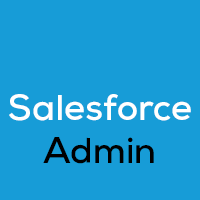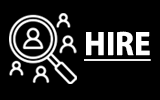Salesforce Admin Hire
Salesforce Admin Hire: The Definitive Guide to Finding and Securing Top Talent
In today’s data-driven business landscape, Salesforce has evolved from a simple CRM tool into the central nervous system for thousands of organizations. It powers sales, marketing, customer service, and a multitude of custom business processes. However, a Salesforce instance, no matter how robust, is only as effective as the person managing it. This is why the decision to hire a Salesforce Admin is a strategic one, not just a tactical one.
For hiring managers, HR professionals, and technical team leads, the task can seem daunting. The market is competitive, and the distinction between an adequate administrator and a truly exceptional one can be the difference between a platform that merely exists and one that actively drives business growth. A mediocre Salesforce Admin hire can lead to spiraling technical debt, inefficient workflows, and low user adoption. Conversely, a skilled administrator can unlock new levels of efficiency, streamline complex operations, and provide a significant return on your CRM investment.
This comprehensive, long-form guide will equip you with the insights and actionable strategies to confidently navigate the Salesforce talent market. We’ll go beyond the surface-level job descriptions and explore the nuanced skills, critical interview questions, and modern hiring models you need to find a professional who will not only maintain your platform but also become a strategic partner in your company’s success.
The Indispensable Role of a Dedicated Salesforce Admin
Many businesses, especially small to mid-sized ones, fall into the trap of assigning Salesforce administration duties to an existing employee, such as a sales manager or IT specialist. While this might seem cost-effective initially, it often leads to a reactive approach where problems are solved as they arise, rather than a proactive approach that prevents them. A dedicated Salesforce Admin hire is crucial for several key reasons:
-
Platform Health and Security: They are the guardians of your Salesforce org. This includes managing user permissions, implementing security protocols, and ensuring data integrity. Without a dedicated admin, your data can become messy, your security can be compromised, and your users can have access they shouldn’t.
-
Proactive Problem-Solving: A great admin doesn’t wait for a user to report an issue. They anticipate challenges, optimize existing processes, and look for opportunities to leverage new Salesforce features to improve efficiency.
-
Driving User Adoption and Training: The best way to get a return on your Salesforce investment is to ensure your team actually uses it. An admin acts as a trusted internal consultant, providing ongoing training, creating documentation, and ensuring the platform is intuitive and easy to use.
-
Strategic Business Partnership: A skilled Salesforce Admin understands business processes. They work with stakeholders to translate business needs into technical requirements, building solutions that directly address operational challenges and support company goals.
When you decide to hire a Salesforce Admin, you are not just hiring a technical expert; you are hiring a critical part of your operational strategy.
Navigating the Different Types of Salesforce Administrators
The term “Salesforce Admin” can be broad. To make a successful Salesforce Admin hire, it’s crucial to understand the different levels of expertise and roles within the administration space.
-
Junior Salesforce Administrator: Typically a professional with less than 2-3 years of experience. They are great for managing daily tasks like user setup, simple report creation, and basic support. They often require mentorship but can be a cost-effective solution for less complex orgs.
-
Mid-Level Salesforce Administrator: This is the workhorse of the admin world. With 3-5 years of experience, they are proficient in complex automation (Flows), data management, and security models. They can handle most day-to-day and project-based tasks with minimal supervision.
-
Senior Salesforce Administrator: A true strategic partner with 5+ years of experience. They not only manage the platform but also act as a business analyst and solution architect. They are responsible for long-term platform strategy, governance, and complex integrations. They often hold multiple certifications.
Understanding these distinctions helps you tailor your job description and compensation to attract the right level of talent.
Essential Skills and Qualifications for a Salesforce Admin Hire
Beyond the basic job description, what are the specific skills that separate a good admin from a great one? Here’s a detailed breakdown of what to look for:
Technical Skills and Knowledge
-
Salesforce Platform Knowledge:
-
Configuration: The ability to customize Salesforce using standard features like objects, fields, page layouts, record types, and validation rules.
-
Automation: Deep expertise in Salesforce Flow is a non-negotiable. This includes Screen Flows, Record-Triggered Flows, Scheduled Flows, and knowledge of Flow best practices.
-
Data Management: Proficiency with data tools like Data Loader, the Data Import Wizard, and understanding of data quality principles.
-
-
Salesforce Certifications:
-
Salesforce Certified Administrator (ADM201): The absolute foundational certification. This proves a candidate has the core knowledge required for the role.
-
Additional Certifications: Certifications like Advanced Administrator, Platform App Builder, or specific Cloud certifications (e.g., Sales Cloud, Service Cloud) are strong indicators of a candidate’s commitment and expertise.
-
-
Understanding of Security and Access:
-
A deep understanding of roles, profiles, permission sets, and sharing rules. A skilled admin can confidently navigate the complex Salesforce security model to ensure data is both secure and accessible to the right users.
-
-
Reporting and Analytics:
-
The ability to create complex reports and dashboards that provide actionable insights to business leaders. This includes knowledge of report types, formulas, and dashboard filters.
-
Soft Skills and Business Acumen
-
Business Analysis: The best admins can act as mini-consultants. They don’t just implement what is asked; they analyze the underlying business need and propose the most effective solution, which may not be the one originally requested.
-
Problem-Solving: This is the core of the admin role. A candidate should be able to walk you through how they would diagnose a user issue, from a simple password reset to a complex data visibility problem.
-
Communication: A great admin is a master communicator. They can translate complex technical details into simple, easy-to-understand language for non-technical users and leadership.
-
User Training and Enablement: They should have a passion for helping others. Ask about their experience in creating training materials or conducting live training sessions.
-
Proactive Mindset: Look for a candidate who is passionate about staying current with Salesforce releases and proactively suggesting improvements to your org.
Image Alt Text: A person in a business setting conducting a job interview with the title “Salesforce Admin Hire” over the image.
The Modern Hiring Process: Best Practices for a Successful Salesforce Admin Hire
Your hiring process is a reflection of your company. A well-structured process not only helps you identify the best talent but also leaves a positive impression on candidates, even if they aren’t hired.
1. The Job Description: Your First Impression
-
Be Specific: Instead of a generic “CRM Manager” job title, use “Salesforce Administrator” and specify the level (e.g., “Senior Salesforce Administrator”).
-
Highlight Responsibilities: Clearly list daily tasks and project-based work, from managing user queues to building complex automations.
-
State Required Certifications: Clearly state that the Salesforce Certified Administrator (ADM201) is a mandatory requirement.
-
Focus on Business Impact: Describe how the role contributes to the company’s mission. For example, “This role will be critical in streamlining our sales process and improving data integrity.”
2. The Interview: Going Beyond the Resume
The interview is your chance to assess skills that a resume can’t capture.
-
The Technical Screen: Start with a technical screen. This could be a short, real-world scenario question. For example, “A sales rep is complaining that their new user profile gives them access to data they shouldn’t see. How would you diagnose this?”
-
The Scenario-Based Interview: Dedicate a significant portion of the interview to scenario-based questions.
-
“Walk me through a complex Flow you’ve built from start to finish. What was the business problem, what did the Flow do, and what challenges did you face?”
-
“Describe a time you had to manage a data migration. What steps did you take to ensure data integrity?”
-
-
The Behavioral Interview: Use this to assess soft skills.
-
“Tell me about a time you had a difficult stakeholder. How did you manage their expectations and deliver a successful outcome?”
-
“What do you do to stay up-to-date with new Salesforce releases?”
-
Image Alt Text: A team of professionals brainstorming with a whiteboard, discussing “Salesforce hiring strategy“.
Strategic Hiring Models: Finding Your Ideal Salesforce Admin
There isn’t a single path to finding the perfect Salesforce Admin. The best model for you depends on your budget, timeline, and project needs.
1. The In-House Hire
-
Description: A traditional full-time employee who is a dedicated resource for your team.
-
When to Use: When you have a complex, ongoing need for platform maintenance, support, and strategic development.
-
Pros: Deep institutional knowledge, strong cultural fit, and direct control over their work.
-
Cons: High cost (salary, benefits), lengthy hiring process, and potential for burnout if they are the only admin.
2. The Freelance or Contract Admin
-
Description: Hiring an independent professional for a specific project or a set period.
-
When to Use: For short-term projects, filling a temporary skill gap, or for smaller businesses that don’t need a full-time admin.
-
Pros: Flexible, cost-effective for specific tasks, and quick to onboard.
-
Cons: Less commitment to your long-term platform health, potential for inconsistent work, and management overhead.
3. The Specialized Staffing Agency
-
Description: Partnering with a firm that specializes in placing Salesforce professionals.
-
When to Use: When you need to quickly find a high-quality, pre-vetted candidate without the hassle of sifting through hundreds of resumes.
-
Pros: Access to a curated pool of talent, significantly faster time-to-hire, and professional screening.
-
Cons: Higher initial cost than direct hiring, and the need to find a reputable agency. For example, CodePro Staffing specializes in connecting businesses with elite Salesforce talent.
4. The Fractional Admin
-
Description: A hybrid model where you pay for a set number of hours per week or month from a consulting firm or senior freelancer.
-
When to Use: Ideal for smaller companies that need a high-level admin’s expertise but can’t justify a full-time salary.
-
Pros: Cost-effective, access to senior expertise for a fraction of the cost, and more consistent support than a project-based freelancer.
-
Cons: Less dedicated time, may not be suitable for companies with a high volume of daily support tickets.
Onboarding and Retaining Your Salesforce Admin
A successful Salesforce Admin hire is only the beginning. A strategic onboarding and retention plan is crucial for a long and productive working relationship.
-
Onboarding:
-
Provide a Clear Plan: Give them a clear onboarding plan for their first 30, 60, and 90 days. This should include getting access to your org, meeting key stakeholders, and a list of their first projects.
-
Knowledge Transfer: Ensure they have access to all existing documentation, and schedule meetings with key team members to understand current processes and technical debt.
-
-
Retention:
-
Invest in Their Growth: Salesforce is constantly changing. Fund their continued education, whether it’s paying for a new certification or sending them to a conference like Dreamforce.
-
Empowerment and Trust: The best admins are self-starters. Trust them to manage their own workload and prioritize tasks.
-
Recognize Their Value: Acknowledge their contributions publicly. Highlight a successful project or a streamlined process they implemented. Showing that you value their work is a powerful retention tool.
-
Conclusion: Making the Right Salesforce Admin Hire
Your Salesforce instance is one of your most valuable assets. By dedicating the time and resources to find the right Salesforce Admin hire, you are making a commitment to the long-term health, efficiency, and growth of your business. This comprehensive guide provides a roadmap for navigating this critical process, from understanding the core skills to crafting the perfect job description and implementing a strategic hiring model. An exceptional admin will not only manage your CRM; they will become a strategic partner, helping you unlock new opportunities and achieve your business goals.
Next Step: Find Your Next Salesforce Admin with Confidence
Don’t let the competitive market stand between you and a high-performing Salesforce team. If you’re ready to find a pre-vetted, elite-level Salesforce professional without the stress of a long and tedious hiring process, contact us for a consultation. We specialize in connecting businesses with top-tier Salesforce talent, ensuring your next Salesforce Admin hire is your best one yet. Let us help you build a solution that drives real, tangible results.
Are you in need of a highly skilled Salesforce Professional?
GET STARTED with our free Client Solution Manager consultation
OR


